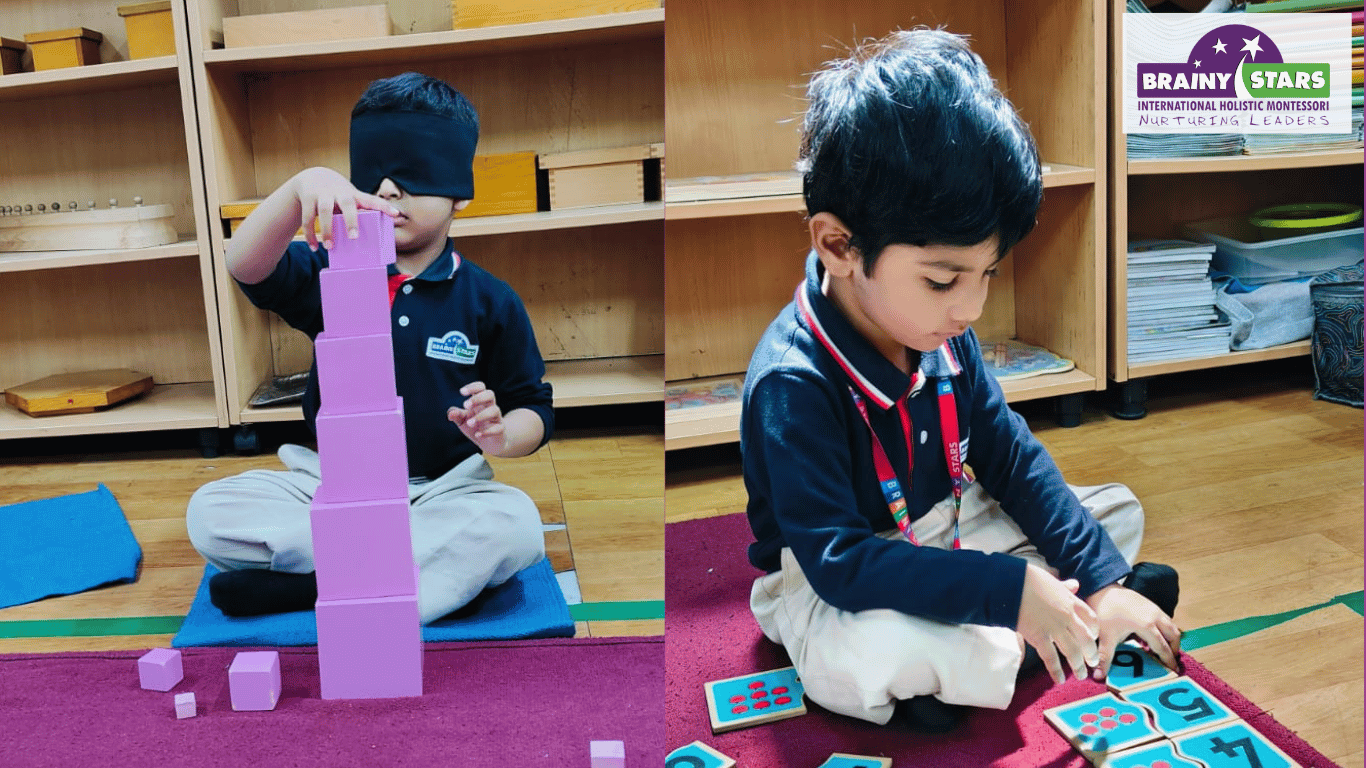The early years of a child’s life are pivotal, setting the stage for their future educational and developmental journey. Dr. Maria Montessori’s approach to early childhood education stands out as a unique and effective strategy, promoting comprehensive growth and nurturing a child’s natural curiosity.
The Montessori learning space
At the heart of Montessori philosophy is the thoughtfully designed learning space. Classrooms are furnished with items suitable for children, ample room to move around, and a variety of hands-on materials that encourage exploration. This setup allows children to make their own choices and learn at their own pace, fostering independence and self-directed learning.
Balancing freedom and structure
Montessori teachers support finding a middle ground between liberty and organization. While children have the freedom to select their activities, there are also rules and limits in place to ensure a structured educational experience. This approach cultivates responsibility and discipline, which are crucial for future achievements.
Engaging in hands-on learning
A key aspect of the Montessori approach is the focus on hands-on learning. Children interact with specially designed materials that aid in sensory exploration, the development of fine and gross motor skills, and cognitive growth. These materials are carefully designed to facilitate learning through touch, movement, and manipulation, making complex concepts more tangible and understandable.
Inclusive classrooms
In Montessori environments, it’s common to find children of various ages together, allowing the younger ones to acquire wisdom from the more experienced children, and the more experienced ones to also learn from the younger ones. This setup encourages a sense of community and collaboration, with older children serving as mentors and role models for their younger peers. This mirrors real-life social interactions and aids in the development of important social skills.
Education tailored to the child
At its core, Montessori education is designed to be child-centered, paying attention to the unique needs and interests of each child. Teachers observe and guide rather than impose, adapting their teaching methods to suit different learning styles. This personalized approach ensures that each child receives the necessary support for their academic, emotional, and social development.
Building independence and confidence
The Montessori method emphasizes building independence starting early in life. Through practical life activities like pouring, buttoning, and tying, children acquire essential life skills and a sense of achievement. This empowerment leads to increased confidence and a positive self-image, setting the stage for future challenges.
Fostering a passion for learning
By nurturing a natural love for learning, Montessori education lays the groundwork for a lifelong journey of exploration and discovery. The focus on curiosity, critical thinking, and problem-solving equips children not only for academic success but also for navigating the complexities of the modern world.
Conclusion
Montessori approach to early childhood development is a robust strategy that respects the individuality of each child, creating a supportive environment where they can thrive. By combining freedom, structure, and hands-on learning, Brainy Stars International Montessori & School, the best school in Jayanagar, Bangalore, lays a solid foundation for future academic achievements and personal growth. Adopting the principles of the Montessori method can significantly contribute to shaping a generation of confident, independent, and lifelong learners.





